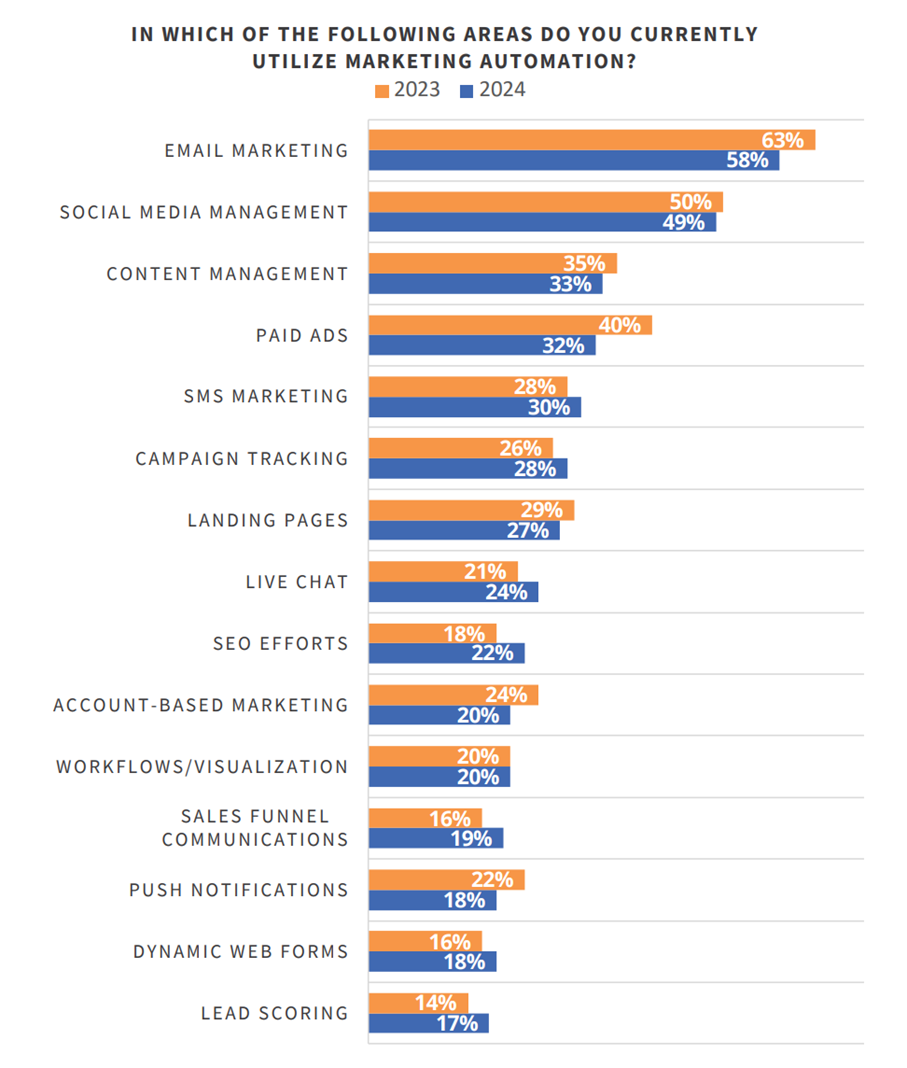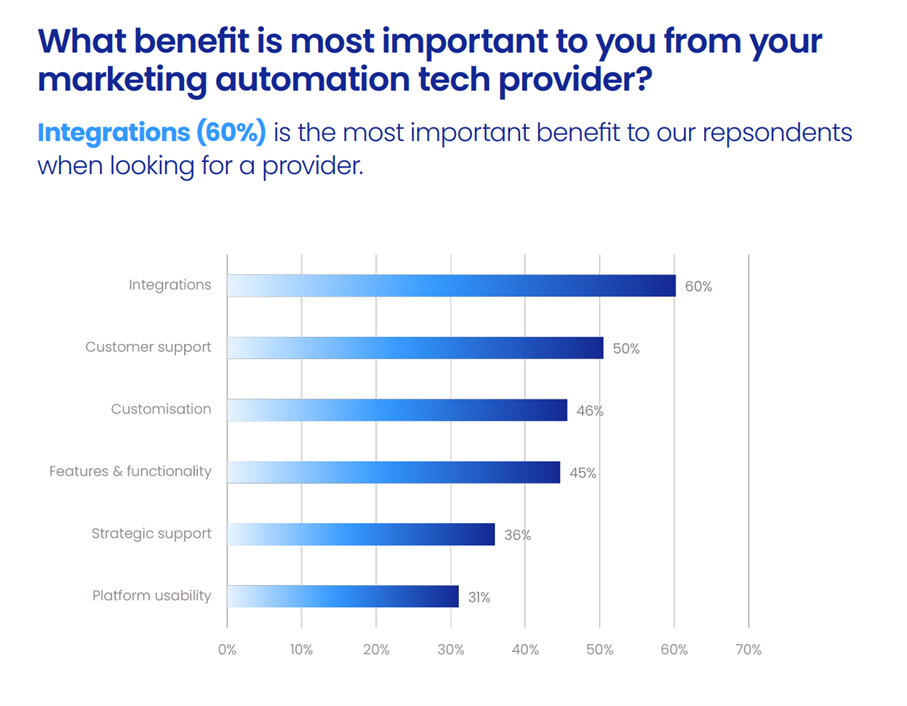Marketing automation tools play a crucial role in establishing effective lead management systems. They also help design dynamic customer journeys. Many companies already use these tools to automate customer interactions, but the degrees of usage vary.

Source: Ascend2, 2024
Overview of a Changing Market
The market for marketing automation tools is increasingly complex. Companies new to marketing automation often struggle to navigate their options. Similarly, those with simple tools may hit their functionality limits.
The market evolves quickly. Large, established platforms develop slowly, while smaller tools focus on specific functions. With the rise of artificial intelligence, this development will likely intensify. Consequently, the tool landscape will become more differentiated.
Comparison of Marketing Automation Tools
The value of studies comparing various marketing automation tools is diminishing. Product comparison sites provide more information and better insights into performance. However, for companies seeking to automate marketing further, the critical question remains: What functionalities do you need, and to what extent?
Differences in Core Functions of the Tools
There are significant differences in the core functions of marketing automation tools. Traditionally, platforms excel in planning, creating, and executing email campaigns. Differences arise primarily in the complexity of supported campaigns. This complexity relates to the intelligence that campaigns gain through personalized email automation based on personal, company-related, or behavior-related criteria.
Moreover, these systems differ in their support for other channels, including web pages, digital ads, social media, and apps. The extent and design of multichannel support in various tools are often challenging to oversee.
Lead Management and Performance Evaluation
In lead management, another core function of marketing automation systems, understanding differences requires a closer look—especially in the B2B sector where CRM integration is essential.
The options for tracking, reporting, and analyzing results are often visible. Here, too, significant differences exist. Their evaluation depends on individual requirements and the capabilities of a company’s existing tech stack for visualizing and assessing performance and economic success.
In addition to the directly usable functions of the respective tool, other aspects play an important role:
Determining Requirements for System and Data Integration
For B2B companies with advanced MarTech stacks, integration with other systems like CRM is a key topic. Most systems can exchange data via APIs. However, whether all relevant data can be exchanged efficiently is another matter.
Costs, Security, and Compliance
Costs are another crucial factor in purchasing decisions. The differences in licensing models and costs for marketing automation tools are substantial. Costs can be compared easily if you know how many users will access the tool, how many contacts are in the database, and the scope of communication.
Similarly, security and compliance with legal requirements need clear specifications. Providers can usually verify these.
Service, Support, and Customization
Assessing needs and performance in customer service, user-friendliness, and customization options is subjective. Personal preferences and existing experiences with marketing automation tools influence this assessment.
Scalability and Future Development
Another often-overlooked aspect is the scalability of marketing automation platforms. Considerations include growing databases, user numbers, and dispatch volumes, as well as new business areas or countries added as users. Integrating new areas (e.g., due to acquisitions) or removing areas can pose challenges.
The future development of tools is crucial. Will they keep pace with advancements like artificial intelligence and new communication channels?
Support in Selecting the Right Tools
Finding an overview of systems and their functions is difficult for companies. First, they must define their requirements, which is challenging without knowing the capabilities and applications of the tools. Relying on the experience of a specialized partner can be beneficial.
Are you searching for a marketing automation tool that fits your company? We can help you define your requirements, compare systems and providers, and select the right solution. We look forward to hearing from you!
Outlook
This blog post is the first in a series addressing the challenges of selecting a suitable marketing automation system. In upcoming parts, we will closely examine selected systems and demonstrate how we approach choosing the ideal system.
Related articles
Marketing Automation with Like Reply
Like Reply is a specialized expert in digital communication with offices in Munich, Milan and Paris. We support companies in the introduction and development of automated communication as well as in the systematic, effective management of leads and customer relationships. Contact us without obligation and find out how we can take the use of Marketing Automation to the next level together.



